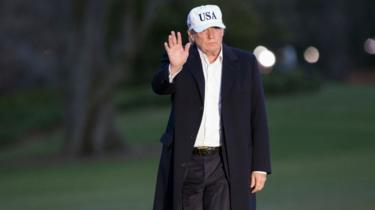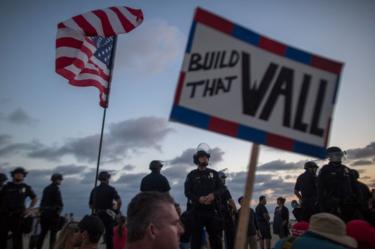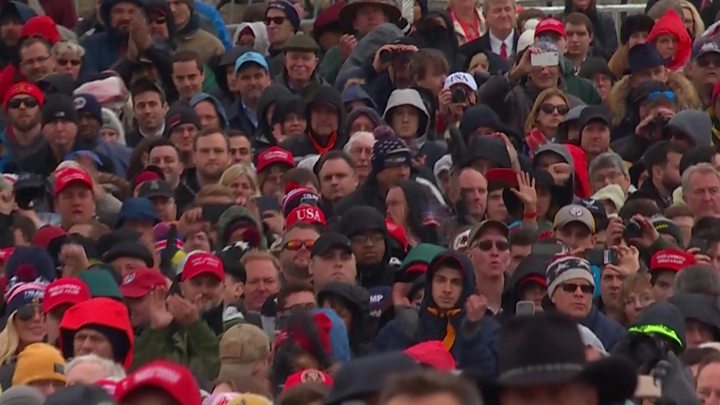Trump touts 'America First' national security strategy
 GETTY IMAGES
GETTY IMAGES
US President Donald Trump is outlining his new national security strategy based on his platform of "America First" in a speech.
The policy envisages a return to a world of superpower rivalry, with China and Russia depicted as the primary threats to US economic dominance.
His speech at Washington's Ronald Reagan Building began by outlining the "failures" of past foreign policy.
Mr Trump will describe "four pillars" to his plan, White House officials say.
It will stress economic security but the new strategy does not recognise climate change as a national security threat.
It is common practice for US presidents to unveil a comprehensive national security policy every four years, and Mr Trump will make economic security central to his plan.
The roughly 70-page document "affirms the belief that America's economic security is national security", a senior White House official said on Sunday.
 GETTY IMAGES
GETTY IMAGES
Barack Obama in 2015 declared climate change an "urgent and growing threat to our national security", however Mr Trump's strategy removes it as a threat.
Mr Trump will still mention the importance of environmental protections, officials say.
Officials say the four themes that Mr Trump will discuss are protecting the homeland, promoting American prosperity, demonstrating peace through strength and advancing American influence.
The strategy, which White House officials began work on 11 months ago, suggests a return to Mr Trump's campaign promises and explicitly states that "the United States will no longer turn a blind eye to violations, cheating or economic aggression".
Mr Trump will use harsh language to criticise China and Russia, which he will label "revisionist powers".

Russia and China "are determined to make economies less free and less fair, to grow their militaries, and to control information and data to repress their societies and expand their influence", Mr Trump will say, according to a preview excerpt of the speech.
He will also discuss cyber hacking as a new threat and criticise North Korea, which he will describe as a "rogue regime".
Comments
Post a Comment